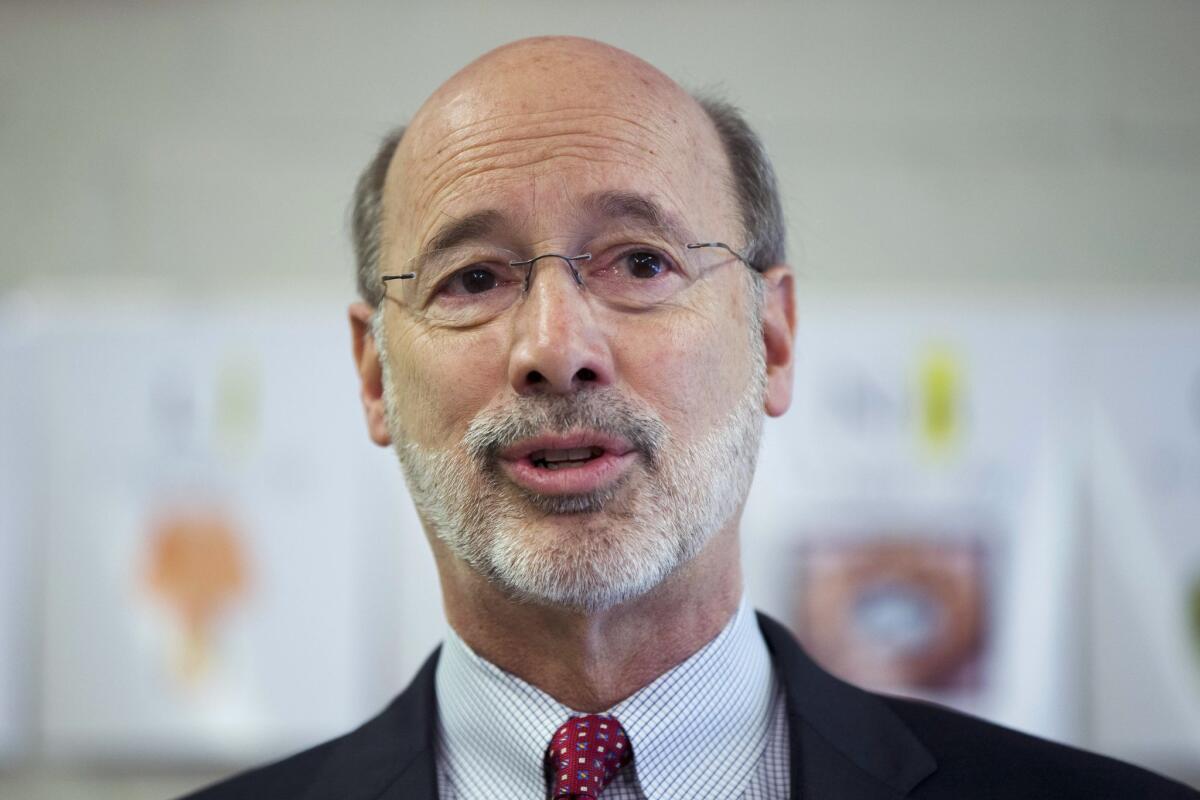Opinion: Pennsylvania governor is right to declare death penalty moratorium

Well, here’s some good news out of Pennsylvania: Gov. Tom Wolf has declared a moratorium on executions pending completion of a state task force report on the effectiveness of the death penalty and “because the capital punishment system has significant and widely recognized defects.”
“Today’s action comes after significant consideration and reflection,” Wolf said in a prepared statement. “This moratorium is in no way an expression of sympathy for the guilty on death row, all of whom have been convicted of committing heinous crimes. This decision is based on a flawed system that has been proven to be an endless cycle of court proceedings as well as ineffective, unjust and expensive. Since the reinstatement of the death penalty, 150 people have been exonerated from death row nationwide, including six men in Pennsylvania.”
The most immediate result: a reprieve for Terrance Williams, who had been scheduled to die March 4. Wolf said he will issue similar reprieves for others facing executions until the task force report is completed and whatever recommendations it makes are dealt with. All of Pennsylvania’s 186 inmates under death penalties will remain on death row. (The full declaration is here.)
California has the same problems with the death penalty as other states. Capital punishment is part of the law, but federal courts have ruled that how California handles the death penalty is unconstitutional in two key ways. Most significantly, U.S. District Court Judge Cormac J. Carney ruled last year that an underfunded system creating decades-long delays means the executions are carried out arbitrarily, serve no penological function and thus are unconstitutional.
But federal courts have also ruled that California officials failed to follow regulatory procedures when they adopted the three-drug lethal-injection protocol, a ruling Gov. Jerry Brown decided in 2013 to not appeal and instead ordered the Department of Corrections and Rehabilitation to develop a new single-drug protocol for executions. But there has been no announced timetable, much to the aggravation of folks who support the death penalty.
In a death-penalty-related lawsuit, Sacramento County Superior Court Judge Shellyanne Chang ruled recently that relatives of murder victims can force the state’s hand. The case was brought by the pro-death-penalty Criminal Justice Legal Foundation on behalf of two families of murder victims, arguing that the state corrections department is violating state law because it has not devised a workable execution protocol.
It’s hard to say how that case will play out. But the Legislature could make it go away quite easily: Just ban the death penalty.
Follow Scott Martelle on Twitter @smartelle.
More to Read
A cure for the common opinion
Get thought-provoking perspectives with our weekly newsletter.
You may occasionally receive promotional content from the Los Angeles Times.











